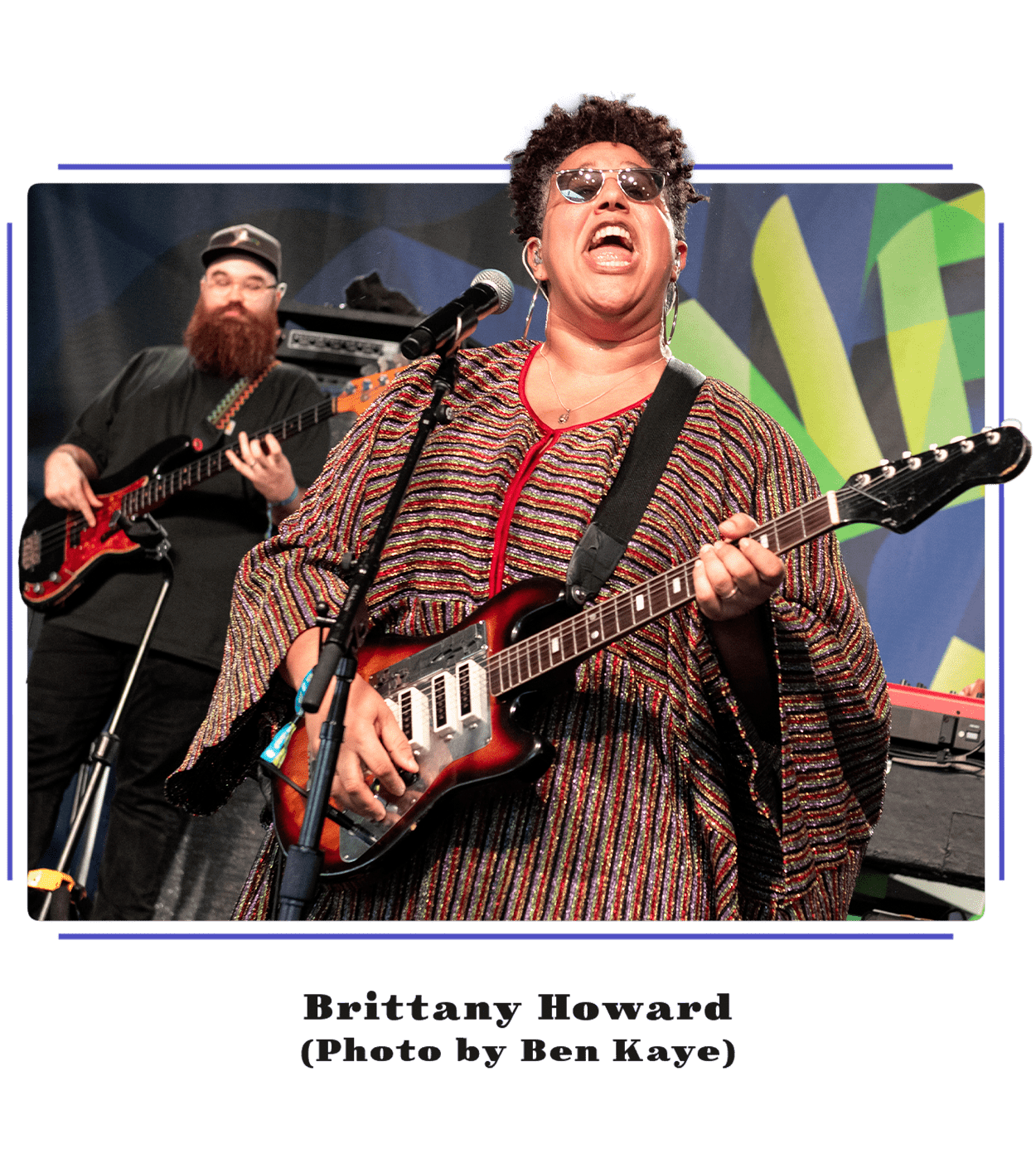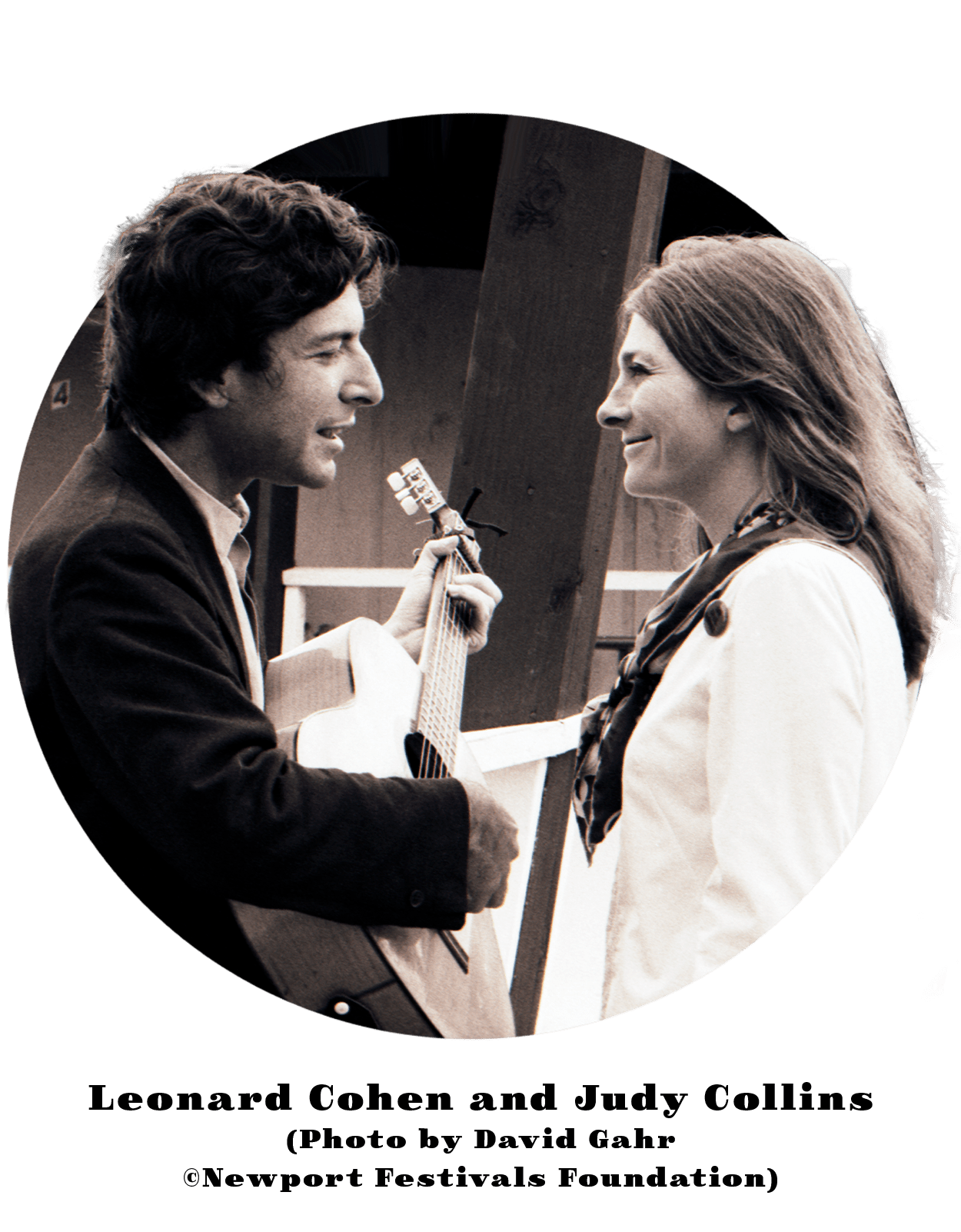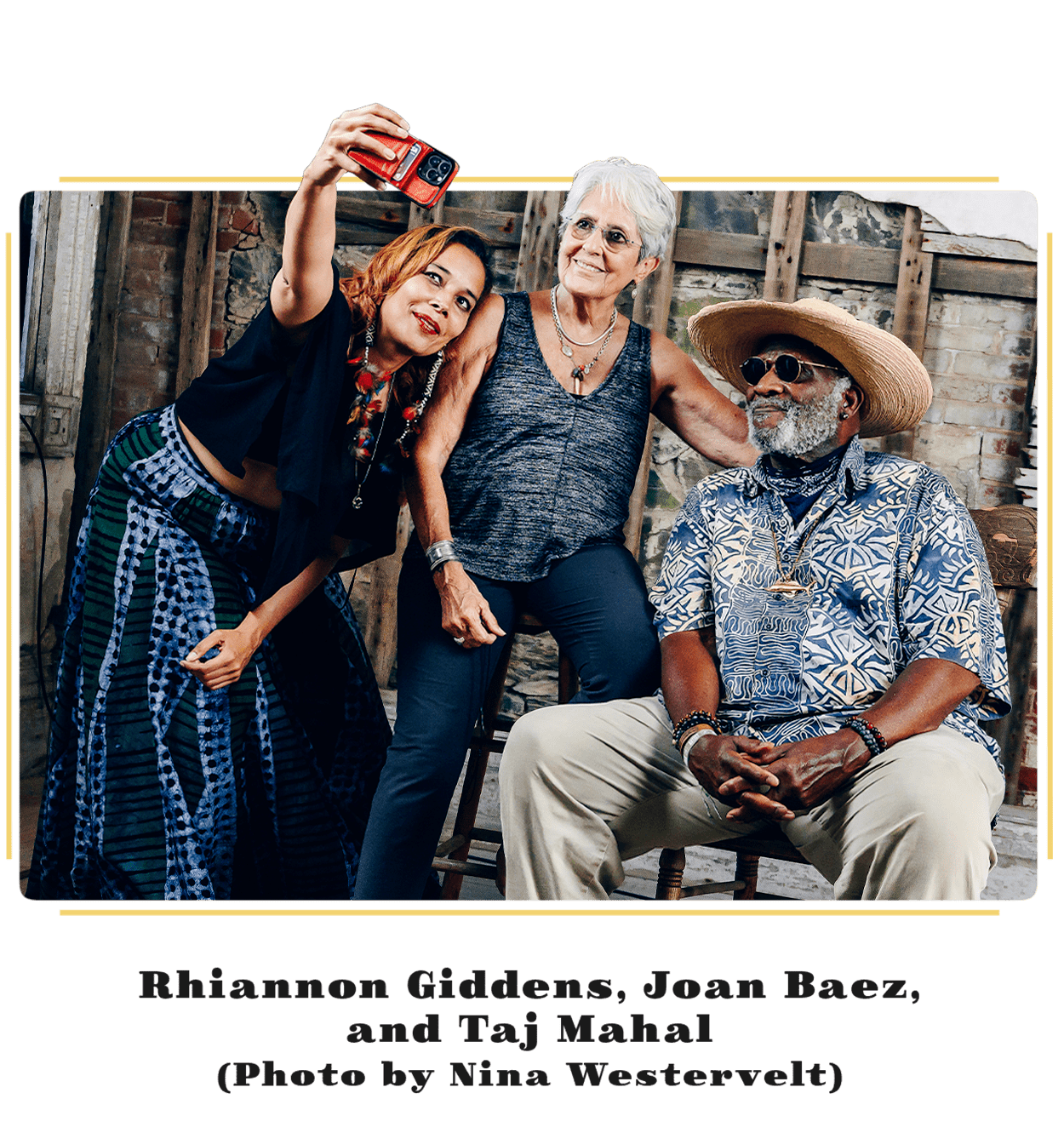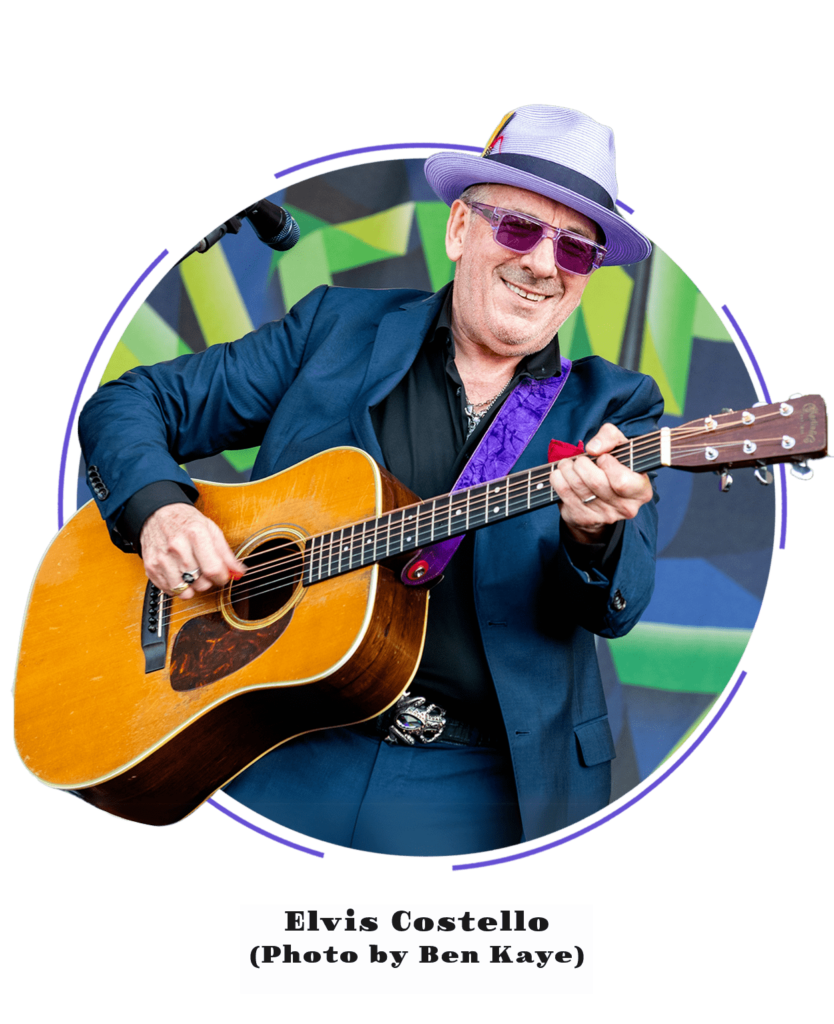In the mid-2000s, the Newport Festivals were surviving, but public interest had plateaued. They were esteemed festivals, sure, but there could only be so many legendary sets by Seeger and Baez and Dylan (who returned in 2002), and icons like Ellington and Davis and Coltrane were no longer around. To fulfill the Newport Festivals’ mission of preserving these musical traditions in perpetuity, the lineups needed to attract new audiences. Wein’s experimentations in the ’60s would serve as inspiration.
Newport Folk made the earliest moves, welcoming Pixies in 2005 for an acoustic set, a reverse homage to Dylan 40 years later. The Avett Brothers, My Morning Jacket, Trey Anastasio, Brandi Carlile, and Rhode Island natives Deer Tick came over the following years. Wednesday, MUNA, The War on Drugs, and Dropkick Murphys played this past summer. There are tales of a 90-year-old Seeger climbing a speaker tower to get a better look at The Decemberists in 2009.
Perhaps unsurprisingly, given the genre’s insular nature and memories of ’69, Newport Jazz took a bit longer to adapt. Yasiin Bey (aka Mos Def) performed with Robert Glasper in ’09, one of the earliest examples of hip-hop at either fest. Artists like Norah Jones, Galactic, Kamasi Washington, Thundercat, and Shabaka all started making frequent appearances, while 2024 featured Afro-Cuban funk master Cimafunk, André 3000’s New Blue Sun Live improvisation, Adrian Younge and A Tribe Called Quest’s Ali Shaheed Muhammad’s Acid Jazz Is Dead DJ set, and new wave punk Elvis Costello.
“I’d say the more music, the better,” Samara Joy remarks of the diverse bill. “I think people naturally have all of these different influences and backgrounds musically, myself included. And so why not? Use an opportunity at a music festival to try to satiate all of those interests and introduce people to something they might not have otherwise heard.”
Costello, a repeat Folk Festival performer, knows he’s not someone most people would consider jazz. But to Joy’s point, he’s not an outsider either. “Look at the bill today: Samara Joy, who is in a traditional style of jazz vocalist, but she’s incredible. And before that Artemis, who were playing just at the highest level. And Glasper and Kamasi… and André 3000. I’ll take that kind of company. I don’t have to apologize for being at Newport Jazz.”
Nor does Brittany Howard: “It wasn’t anybody said, ‘If you want to play jazz, this is what you got to listen to. Or if you want to do folk, you got to be invested in all the greats that have come before you.’ It was more just like, ‘Oh, this is good. I like that.’ And I just borrow elements and put it into my style… It’s kind of validating that I am here because I got a lot of genre going on. I got so much genre going on there’s no genre no more.”

McBride acknowledges the challenge of keeping the jazz audience — “our central nervous system” — satisfied as he and Sweet embrace change. He recounts multiple instances this year of fans asking him for more genre titans on the lineups, only to find themselves stumped under the Socratic response of, “Such as?” “I think what we’re discovering is that these jazz legends — again, it’s 2024 — they’re not here,” he says. “We’re trying to make new ones.”
New ones like Joy, who has played the last three consecutive Jazz Fests, progressing through each of the stages in size order: Harbor, Quad, Fort. “I’m grateful I’ve advanced to the next stage,” she says. “It feels like a video game or something like that; I’ve leveled up, you know? I’m glad for them believing in me from when I had never been to Newport ever to all of a sudden being able to perform on that great stage that so many have graced.”
Joy belongs to a long lineage of musicians who, once introduced to Newport audiences, become prominent figures at the festivals and in pop culture at large. Judy Collins was known for passing the torch at Newport Folk, bringing both Leonard Cohen and Joni Mitchell to the stage in ’67. Johnny Cash famously refused to perform unless his guitarist, a then-unknown Kris Kristofferson, was given a slot. Almost 50 years later, Kristofferson returned to Newport with another new artist in tow.

“He was supposed to do one song; he ended up doing an hour set and basically helped introduce the Newport world to Margo Price,” recalls Sweet. “Just such a great way to come back. I mean, there was not a dry eye.”
Newport Folk’s recent history is punctuated with instantly legendary sets celebrating a cross-generational legacy with all-hands-on-deck collaborations, harkening back to the closing jams at the original Newport Jazz. There was Dolly Parton joining Carlile’s The Highwomen in 2019, and Joni Mitchell and Paul Simon both coming out of retirement in 2022. The Dawes-led “’65 Revisited” marked the 50th anniversary of Dylan’s electric set with Gillian Welch & David Rawlings, First Aid Kit, Hozier, and Robyn Hitchcock.
2019’s “If I Had a Song” performance, curated by The Decemberists’ Chris Funk and featuring lyric books handed out to the crowd, celebrated the folk canon with Benmont Tench, Janet Weiss, Json Isbell, John Stirratt, Mavis Staples, and more; My Morning Jacket’s Jim James and Kermit the Frog sang “Rainbow Connection,” and Fleet Foxes’ Robin Pecknold, Fruit Bats’ Eric D. Johnson, The Shins’ James Mercer, and more delivered a stunning “Suite: Judy Blue Eyes” with Collins herself.
“We did the Paul Simon tribute, and I was there for the Joni set as well, and that one was great,” says Rateliff. “But sometimes I don’t think it’s necessarily the big names that make it special. I felt like this year was particularly special. Like, Sierra Ferrell’s set was fantastic.”
One legend walking around Newport Folk 2024 also appreciates the focus on the next generation of talent — especially because she was once one of them. “At this last show, I didn’t recognize anybody but Hozier. And that’s a disgrace,” Joan Baez says, her laugh sweet even through the phone. “But I mean, I loved watching while I was there. It’s just the young people starting out. I was certainly a young person starting out [at Newport]. That really launched me.”
It’s all part of the same cycle. “Joan Baez and Mavis Staples and Taj Mahal, we brought them here, specifically, so that people like Rhiannon Giddens can bring out Taj and Joan and Mavis and be like, ‘I’m here because of these people,'” explains Sweet.

Sweet gives George Wein “so much credit” for establishing Newport as a place that embraces experimentation, allowing for out-of-the-box bookings while still honoring what McBride would call “the roots.” “I’m just using George’s playbook and bringing it back up and allowing us to have the conversation [rather] than to not be talking about it at all,” Sweet says of the increasingly eclectic lineups. “If we’re having a conversation about it because you disagree, at least we’re talking about it instead of, ‘I have no desire to talk about your lineup because it’s not interesting.'”
McBride concurs: “One of my all time favorite sayings was from Cannonball Adderley. And Cannonball Adderley used to say, ‘I give my audiences 50 percent of what they want to hear and 50 percent of what I think they need to hear.’ And I think that’s such a profound statement.”
One thing modern Newport Folk and Jazz audiences have apparently, in Adderley’s words, needed to hear more of is hip-hop.

